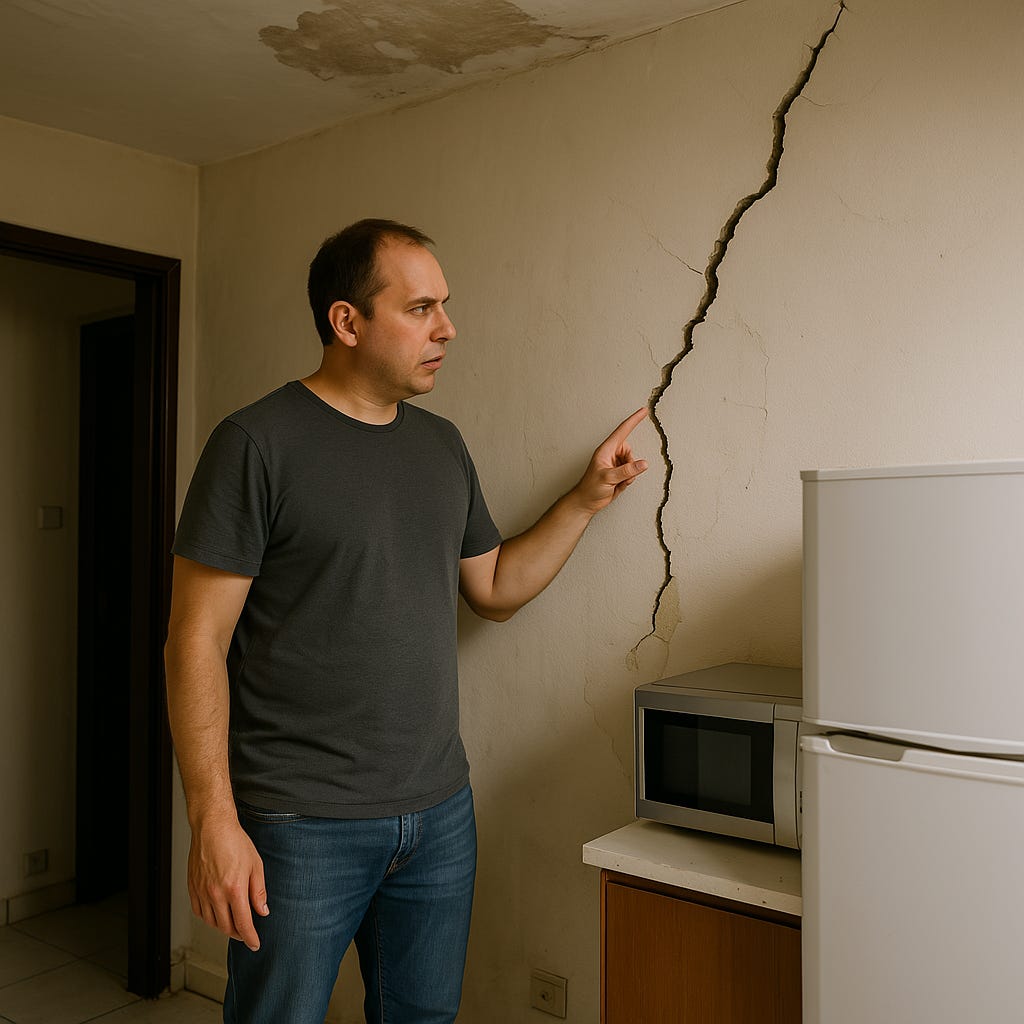Seismologists Confirm Earthquake, Landlords Blame Cracked Walls on Tenants Anyway
By KIP DUNGWORTH, STAFF REPORTER
BANGKOK, THAILAND — The earth shook. Buildings swayed. Buildings collapsed. But as rescue teams searched for survivors, Bangkok’s landlords searched for liability loopholes.
The quake, centered in Myanmar’s central region, left more than 1,700 dead and sent tremors through the Thai capital, toppling a 30-story construction site in Chatuchak. Eighteen are confirmed dead in Bangkok. Seventy-eight more remain missing.

Elsewhere in the city, the damage is less catastrophic — but no less contested.
As tenants returned to find warped ceilings, misaligned doorways, and dripping ceilings, many were greeted not with sympathy, but with invoices.
“These buildings are designed to withstand anything short of a full invasion,” insisted Johan “Spiffy” Wexler, a property agent with a suspiciously good tan and zero engineering credentials. “If you’ve got cracks, maybe don’t hang kettlebells on the curtain rods.”
Not everyone agrees.
“I know what my wall looked like two days ago,” said Carl Mendoza, a 41-year-old Filipino-American coder and long-time Sukhumvit renter. “Now it looks like a spider tried meth and went interior decorating.”
Mendoza says his landlord immediately blamed “excessive fan usage” and threatened to deduct repairs from his deposit.
With contracts that wouldn’t hold up in small claims or a stiff breeze, Bangkok renters say landlords are weaponizing ambiguity in a wave of what some Facebook commentators have labelled "tectonic liability laundering."
In Ekkamai, a condo resident was informed his deposit would be withheld until he corrected the “disharmonious microwave vectoring” believed to have destabilized the unit. In On Nut, a woman received a Line message stating her cracked bathroom tiles were the result of “showers too hot for Thai plumbing norms.”
Sources close to the bar tab say landlords are citing previously unknown clauses, including “Act of Tenant,” “Vibrational Negligence,” and one case of “Failure to Ground the Furniture.”
“This isn’t the first quake,” noted Dr. Preecha Suphan, a structural engineer. “But it may be the first time landlords tried to blame tectonic activity on improper aircon filter maintenance.”
Structural engineers have warned that aftershocks could worsen existing damage, particularly in older or shoddily built developments. Most of these are still fully occupied, since no one in Bangkok has a backup apartment or the emotional bandwidth to argue with a juristic office during working hours.
City inspectors are reportedly overwhelmed. Some building managers have started conducting their own “internal reviews,” which consist of glancing at lobby tiles and telling residents not to worry, unless the building actually leans.
With aftershocks continuing and lease renewals looming, many renters are reconsidering their living situations — or at least taking photos of their walls while they still have them.
“It’s an act of God,” said one landlord with holdings in Asoke, texting from his Bali villa. “And God didn’t pay a deposit.”

